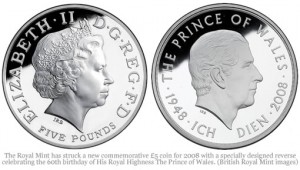So, I never blogged a follow up to the Canadian election in October. The Tories (Conservatives) won with Stephen Harper as Prime Minister. The Liberals were licking their wounds and their leader, Stephane Dion (no relation to Celine), looked like he was on the way out.
Canadian politics is usually fairly bland (although, what do I know, eh?), ever since Pierre Trudeau left office. Part of the political lore up there is Trudeau’s “fuddle duddle” incident, where he mouthed obscenities to the shock and horror of those on the business end of such conduct:
Well, things are heating up and it all started with Stephen Harper riling the other parties by threatening to cut Federal public campaign funding, framed as a cost-cutting manœuvre. Apparently, he didn’t learn from an earlier gaffe when his office went on record as supporting arts funding cuts in early autumn. So, the perception has been building that Harper’s approach to solving financial woes is to cut funding to constituencies that don’t support him anyway.
When I was in Toronto last week, there was a huge buzz about the Liberals, NDP, and the Bloc Quebécois forming a coalition with the intent of ousting Harper. He backed down on the campaign financing cuts, but it was too late. Worries about the economy, which ironically helped the Conservatives win in October, fueled the opposition’s lack of confidence in Harper’s budget and economic plan in Parliament.
In just seven short weeks, Harper went from leading a minority government (plurality of seats, but not a majority), to being on the verge of getting ousted through a “no confidence vote,” which would effectively unseat him as Prime Minister. What to do, oh what to do? Would Harper be accused of crying to “mama and to television,” as Trudeau accused the Tories of in the early 70s? What to do, indeed!
Lock the doors!
In a strange twist, he convinced the Governor General, Michaelle Jean, a role that is usually just ceremonial (tip of the hat to the UK monarchy), to suspend Parliament until the end of January, giving Harper time to stall a “no confidence” vote and to create an economic stimulus package. This quote from an AP article notes:
“A governor general has never been asked to suspend Parliament to delay an ouster vote when it was clear the government didn’t have the confidence of a majority of legislators.
‘There is no precedent whatsoever in Canada and probably in the Commonwealth,’ Constitutional scholar and Queen’s University political scientist Ned Franks said. ‘We are in uncharted territory.'”
With Parliament suspended, the coalition cannot form and how Harper and the Conservative MPs (ministers members of Parliament) are scrambling on a massive PR blitz to gain support of the people. Some might argue that the suspension is anti-democratic, while others are saying that it was unlikely that a stable coalition government could be formed by the Liberals (centre left), New Democrats (socialist), and Bloc Quebécois (Quebéc nationalists).

Of course, as someone from the US, I find all of this Governor General (GG) stuff odd. My thoughts for a while have been to wean off the monarchy thing, particularly in light of Quebéc separatism sentiments.
It’s one thing to have QEII, but does Canada really want Charles’ mug on the legal tender? Although unlikely, what if it came to this character as UK head of state?
I’m rather curious about how this turns out…
